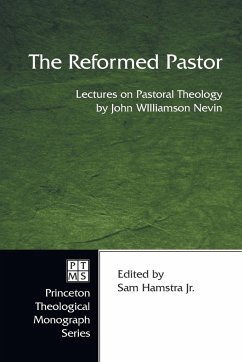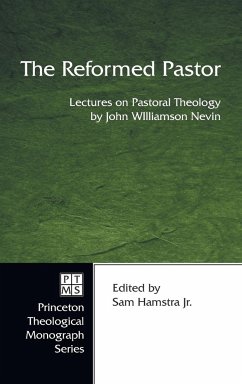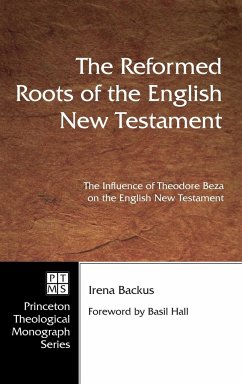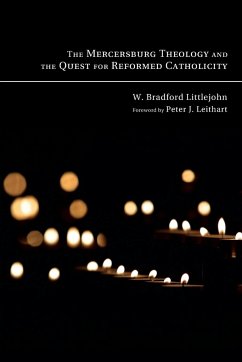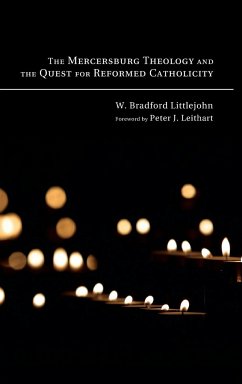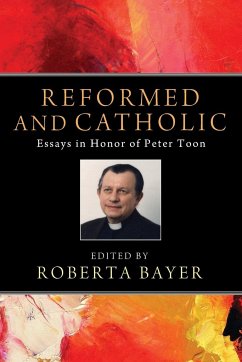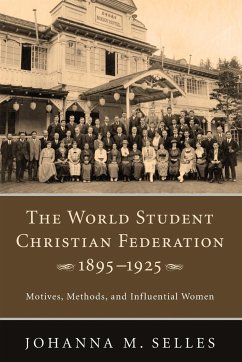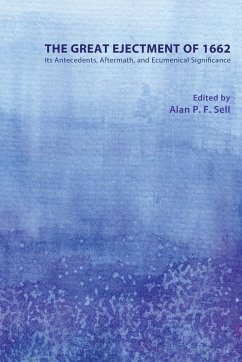During the relatively short history of American Protestantism countless pastors, theologians, and pastor-theologians have addressed a variety of pragmatic issues facing Christian congregations. No one has done so with greater theological precision and passion than the Reformed theologian John Williamson Nevin (1803-1886). Nevin made his mark in American Protestantism with the publication of The Anxious Bench and The Mystical Presence. In this volume, Sam Hamstra brings to light Nevin's previously unpublished "Lectures on Pastoral Theology," a work that provides students with a more comprehensive portrait of one of the nineteenth century's leading Reformed theologians in America. Hamstra's introduction provides an important companion to Nevin's "Lectures," one that includes application for twenty-first-century pastors, as well as a surprise for those familiar with Nevin's critique of New Measures.
Hinweis: Dieser Artikel kann nur an eine deutsche Lieferadresse ausgeliefert werden.
Hinweis: Dieser Artikel kann nur an eine deutsche Lieferadresse ausgeliefert werden.

